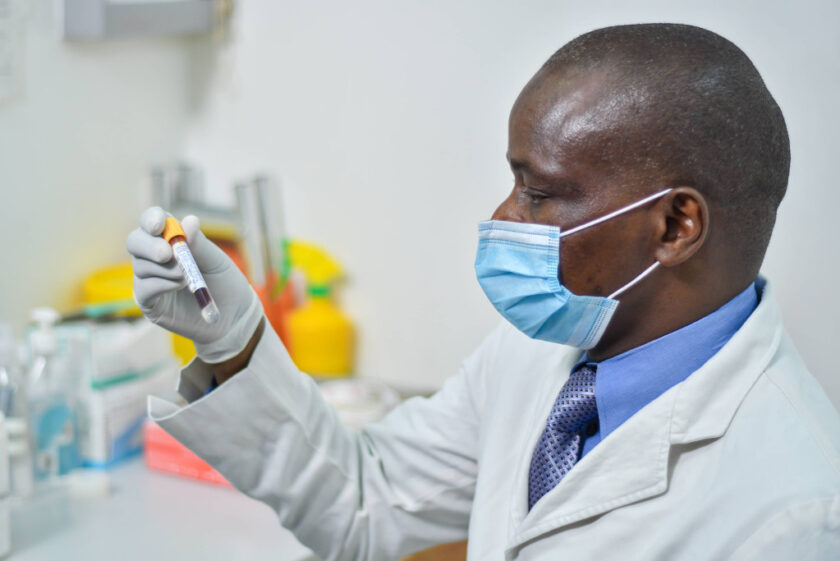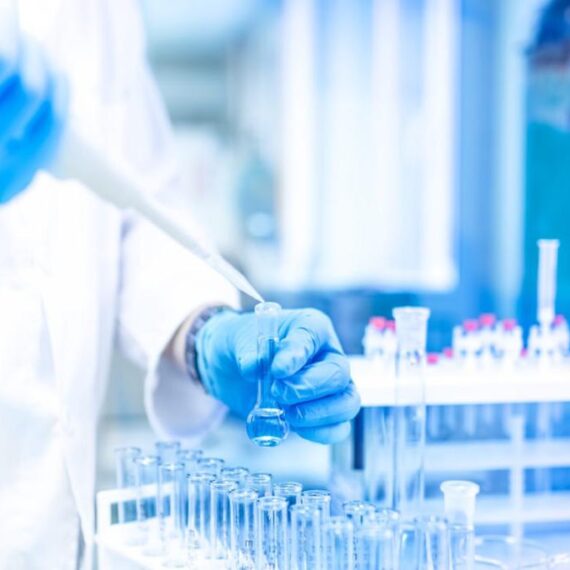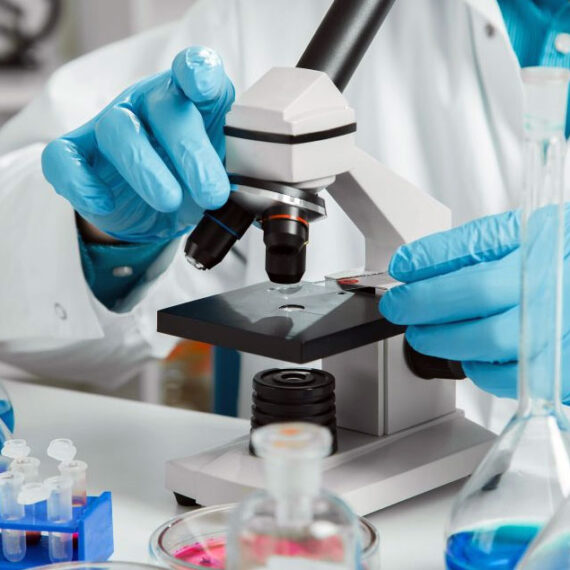Call the Lab:
+234 810 156 6324
Location:
7 Junvon Close, Ogbaku
Owerri-West LGA, Imo State, NG
Hours: Mon - Fri:
8am - 5pm
Sat: 9am - 3pm | Sun: CLOSED
- Home
- About Us
- Services & Packages
COVID-19 Testing Solutions
Nucleic Acid Amplification SARS Co-V2 and the Transcription Mediated Amplification (TMA) methodologies are used in this test. - Research
- News
- Contact Us
Chemical Pathology
A pivotal branch of clinical pathology, focuses on the biochemical analysis of bodily fluids to diagnose diseases and monitor health status. This field integrates various laboratory techniques and methodologies to analyze chemical markers in blood, urine, and other specimens
Overview
Chemical pathology, a pivotal branch of clinical pathology, focuses on the biochemical analysis of bodily fluids to diagnose diseases and monitor health status. This field integrates various laboratory techniques and methodologies to analyze chemical markers in blood, urine, and other specimens.
By employing advanced technologies such as mass spectrometry and immunoassays, chemical pathologists can identify abnormalities that may indicate underlying health issues. For instance, alterations in glucose levels can signal diabetes mellitus while abnormal liver enzyme levels may suggest hepatic dysfunction.
By employing advanced technologies such as mass spectrometry and immunoassays, chemical pathologists can identify abnormalities that may indicate underlying health issues. For instance, alterations in glucose levels can signal diabetes mellitus while abnormal liver enzyme levels may suggest hepatic dysfunction.

A critical aspect of chemical pathology is the pre-analytical phase, which encompasses specimen collection, handling, and preparation prior to analysis. Errors during this phase can significantly impact test results and lead to misdiagnosis.
Factors such as improper specimen storage conditions or delays in processing samples can introduce variability that jeopardizes the reliability of biochemical assessments.
Therefore, establishing robust protocols for specimen management is essential for ensuring accurate diagnostic outcomes.
Factors such as improper specimen storage conditions or delays in processing samples can introduce variability that jeopardizes the reliability of biochemical assessments.
Therefore, establishing robust protocols for specimen management is essential for ensuring accurate diagnostic outcomes.


Chemistry Tests we offer
Cortisol
TBD
Ferritin
TBD
Cardiac Biomarkers: Cardiac Troponin T, NT Pro-BNP, D-dimer
TBD
Thyroid function test: TSH, Free T3, Free T4, Total T3, Total T4
TBD
Lipid profile: Total cholesterol, HDL-cholesterol, LDL-cholesterol and Triglyceride
TBD
Renal function tests: Electrolytes, urea, creatinine, uric acid, 24 hour creatinine clearance
TBD
CSF biochemistry: CSF glucose, CSF Protein, CSF Lactate
TBD
Infectious/inflammatory panel: C-reactive protein (CRP), high sensitivity CRP, Procalcitonin, Beta 2 microglobulin
TBD
Chemistry Tests we offer
Tests of Bone and mineral metabolism: Plasma Calcium, Phosphate, Magnesium assays
TBD
Liver function tests/Enzymology: Total and Conjugated bilirubin, Liver enzymes: ALT, AST, ALP, Amylase, Total protein, Albumin
TBD
Glucose metabolism and glycaemic control: Fasting and Random plasma Glucose assays, Oral glucose tolerance tests, HbA1c
TBD
Tumour markers: Total and Free PSA, AFP, CEA, Carbohydrate antigens CA 125, CA 15-3, CA 19-9
TBD
Fertility profile: FSH, LH, Oestradiol, Progesterone, Testosterone, Prolactin, DHEAS
Anti-Mullerian hormone (AMH)
TBD

Preparing for Test Help Ensure It Go Smoothly.
To minimize your waiting period, please complete the personal information on the form prior to your routine tests.
Patient Centered Care
We are committed to offering evidence-based solutions that enable individuals to achieve cognitive clarity and informed decision-making for enhanced personal progress.
Quality Improvement
Our professional team routinely analyzes more than a thousand patient specimens weekly, adhering to rigorous quality assurance protocols.
Your Health And Safety Is Important To Us
Schedule An Appointment
Book A Lab Visit
Please feel welcome to contact our friendly reception staff with any general or medical enquiry. Our doctors will receive or return any urgent calls.
With over 90% of health decisions based on diagnostic results, we are committed to being a trusted healthcare partner.
Contact Us
Quick Contact
If you have any questions or need help, feel free to contact with our team.
Send Us Email:
Call Us Today:
© 2024 Junvon Medical Laboratory & Diagnostic Services, All Rights Reserved.

